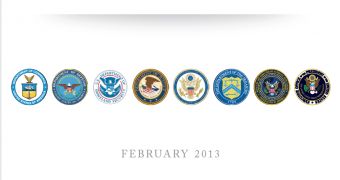The White House has released the Administration’s Strategy on Mitigating the Theft of U.S. Trade Secrets, a plan of action aimed at coordinating and improving the government’s efforts to protect trade secrets against foreign competitors.
The document follows numerous incidents in which China was accused of attempting to breach government and private organizations in an attempt to steal classified information. So, despite numerous statements in which it denied the accusations, China is named in the report as one of the “foreign competitors.”
Several examples are provided in which individuals attempted to sell trade secrets and military technical data to China. The 141-page report contains incidents involving companies such as Valspar, Ford Motor Company, Motorola, DuPont, Dow, and GM.
Here is one example of economic espionage named in the strategy:
“On Feb. 11, 2010 former Rockwell and Boeing engineer Dongfan “Greg” Chung was sentenced to 188 months imprisonment and three years supervised release after his July 16, 2009 conviction in the Central District of California.
“Chung was convicted of charges of economic espionage and acting as an illegal agent of the People’s Republic of China (PRC), for whom he stole restricted technology and Boeing trade secrets, including information related to the Space Shuttle program and the Delta IV rocket.”
While Chinese actors are named “the world’s most active and persistent perpetrators of economic espionage,” there are other countries seen as a threat.
For instance, the report reveals that Russia’s intelligence services are also trying to collect economic information and technology from US targets. South Korea is also named.
However, the US’s allies and partners are also considered to be a threat. That’s because they use their broad access to US institutions to acquire classified information, mainly through human intelligence tactics.
Even more worrying is the fact that, as the document highlights, many of these states have advanced cyber capabilities.
And, apparently, even WikiLeaks and hacktivists deserve a place on the list of entities that pose a threat.
The complete strategy is available here.

 14 DAY TRIAL //
14 DAY TRIAL //